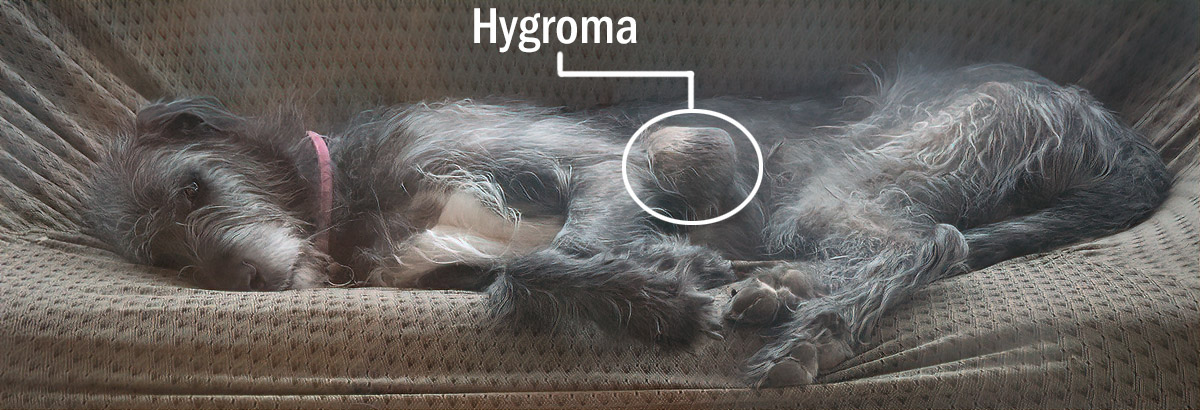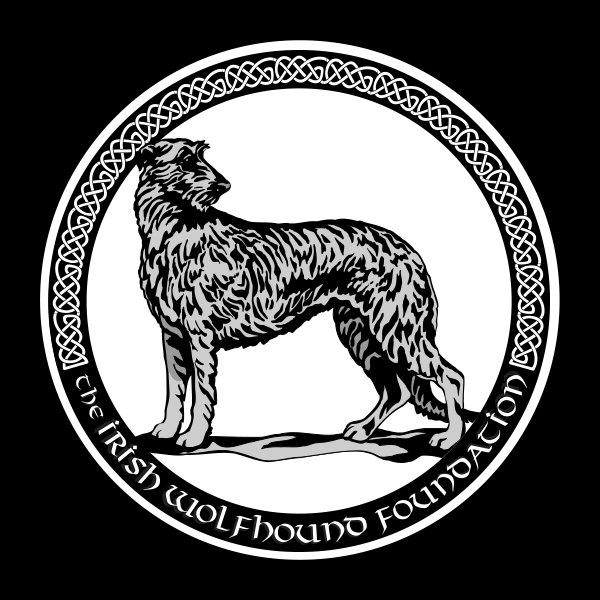IW Foundation Health Library:
Hygromas
 A hygroma, also known as a false bursa, is a fluid-filled sac that forms over a joint. It most commonly appears on the elbow, but can appear on other pressure points like where the dog sits (a.k.a., "butt bursas"). As you can see in the photo above, hygromas can become quite large. Nonetheless, they are merely unsightly, not dangerous or painful to the dog. They should NOT be drained unless they get infected, which is uncommon. If the hygroma is hot to the touch and/or leaks fluid it may be infected, and your vet should be consulted. Otherwise, there are a wide variety of anecdotal treatments to try and get hygromas to go away faster, from massaging the hygroma regularly to putting herbal preparations on it to special bandages to cold laser therapy. There aren't any studies to support any of these but as long as they don't harm the dog they may be worth trying. Or you can be patient and just wait for it to go away in 6 months or so. A very, very small percentage of dogs retain hygromas for many years. As long as they don't get infected, the advice is still to leave them alone.
A hygroma, also known as a false bursa, is a fluid-filled sac that forms over a joint. It most commonly appears on the elbow, but can appear on other pressure points like where the dog sits (a.k.a., "butt bursas"). As you can see in the photo above, hygromas can become quite large. Nonetheless, they are merely unsightly, not dangerous or painful to the dog. They should NOT be drained unless they get infected, which is uncommon. If the hygroma is hot to the touch and/or leaks fluid it may be infected, and your vet should be consulted. Otherwise, there are a wide variety of anecdotal treatments to try and get hygromas to go away faster, from massaging the hygroma regularly to putting herbal preparations on it to special bandages to cold laser therapy. There aren't any studies to support any of these but as long as they don't harm the dog they may be worth trying. Or you can be patient and just wait for it to go away in 6 months or so. A very, very small percentage of dogs retain hygromas for many years. As long as they don't get infected, the advice is still to leave them alone.
It is speculated that hygromas are nature's way of protecting the joint from trauma, for example when you have a young hound flopping down regularly on hard surfaces. Providing softer bedding and encouraging the hound to lay there may facilitate the hygroma's healing.
You can surgically drain or remove hygromas but they have a tendency to regrow since the area is still under stress. It is pretty much impossible to keep an elbow still or keep a hound from lying on it while healing.
Links provided here provide Irish Wolfhound-specific, sighthound, and/or general canine information relevant to Irish Wolfhounds.
Disclaimer: The Irish Wolfhound Foundation provides the information on this website for the education of its readers. No information on this website should be used for veterinary medical purposes, diagnostically, therapeutically, or otherwise. Consult a veterinarian before attempting to medically treat your dog or changing your dog's medical treatment.
Note: Links to content outside iwfoundation.org may become inactive over time.


